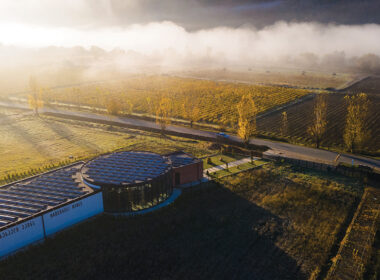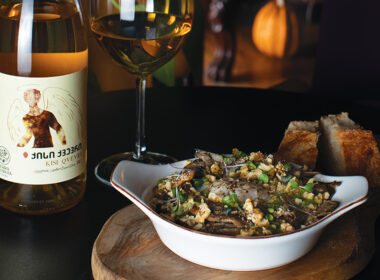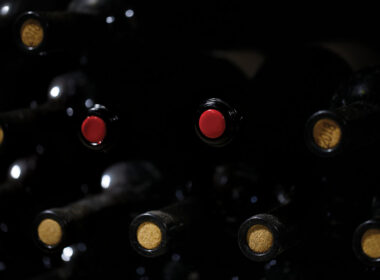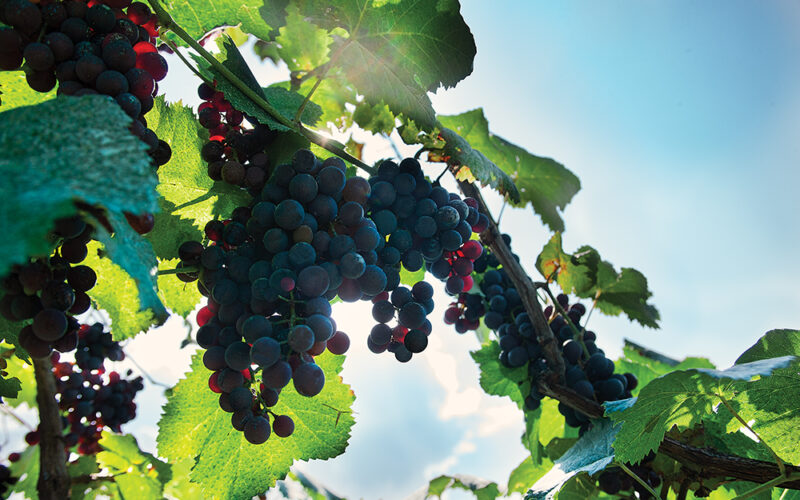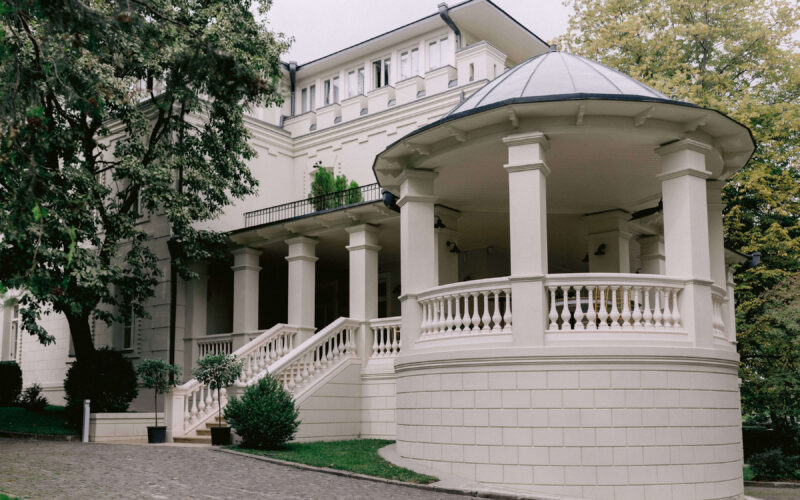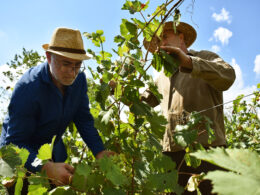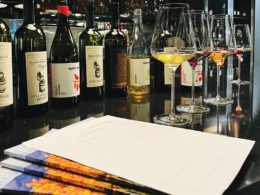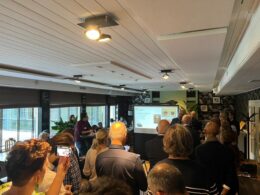Georgian wine (especially qvevri wine) is gaining popularity worldwide, including the UK, considered to have a special appreciation for wine. It practically creates wine fashion. The UK is among the strategic markets for Georgian wine, and its popularity in this country reflects on other markets. Georgian Embassy in the United Kingdom and the Ambassador of Georgia to the United Kingdom H.E. Sophie Katsarava are actively involved in the popularisation of Georgian wine. Joint campaigns with the National Wine Agency spiked exports by 155% this year.
H.E. Sophie Katsarava, MBE. The Ambassador of Georgia to the United Kingdom
“One of my priorities as the Ambassador of Georgia to the United Kingdom is strengthening trade and economic relations between two countries. Georgian wine is one of the leading export products of Georgia to the British market. At the same time, it is also the most challenging product to establish, considering the level of competition. Despite this fact, for the last three years, the exports of our wine have substantially increased, which, in part, is due to active efforts from the Embassy’s side. Our efforts are concentrated on both raising awareness about Georgian wine and aiding the exports. It is worth noting that, despite the pandemic, we had a record 155% increase in exports of Georgian wine, and around 430,000 bottles were imported to the British market in 2020. As of today, the assortment of Georgian wine on the British market has increased. Our wine is sold in high-end supermarkets and exclusive wine boutiques, restaurants, and online stores.
First of January 2021 saw the implementation of the UK-Georgia cooperation and strategic partnership agreement, which includes free trade regulation clauses. In addition, with the active support of our Embassy, “The UK-Georgia Trade Hub” was launched in the autumn of last year. The Hub facilitates the entering of Georgian companies, including small and medium-sized enterprises, into the British market and vice versa. So, we hope that the rising dynamic of Georgian exports will maintain for the years to come.
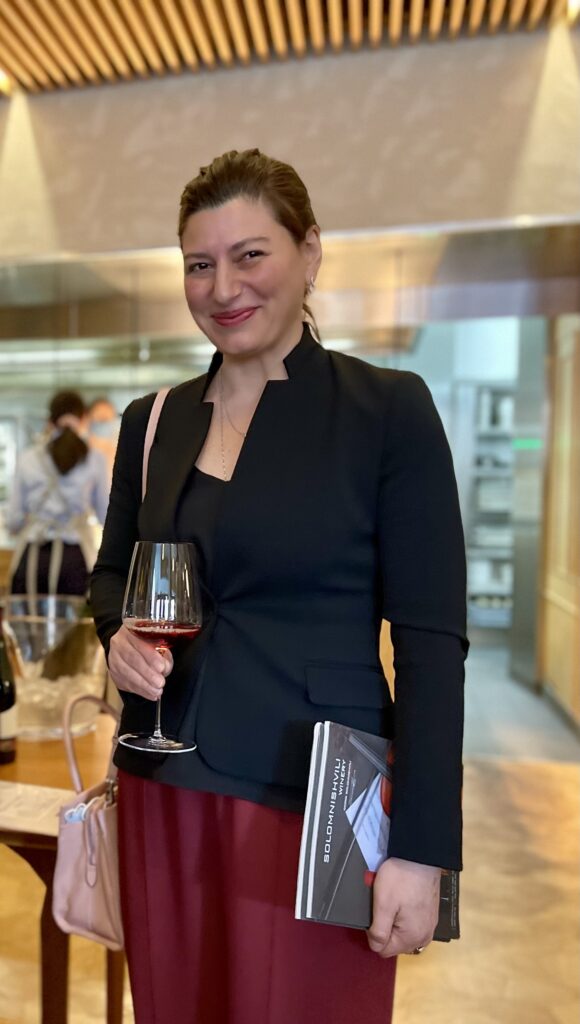
Our Embassy works closely with the National Wine Agency, wine producers, local importers, and wine experts. Furthermore, we support Georgian wine producers in participating in international exhibitions held in Great Britain and having Georgian wine tastings for different segments.
Before the pandemic, Georgian companies were regularly represented in prestigious exhibitions, such as London Wine Fair – one of the largest wine exhibitions in Europe – and Raw Wine, an organic wine festival, where Georgian wine was always popular.
Due to challenges posed by the pandemic, the tastings of Georgia wine transferred to the digital world. However, due to the gradual easing of restrictions in the UK, two important events have already taken place over the past month: the largest Georgian wine tasting in London since the pandemic, featuring products from up to 100 companies, and an event for Parliament and the diplomatic corps, where we hosted with Georgian wine.
Local media is also very interested in Georgian wine and cuisine, including in leading publications such as The Guardian, Decanter, and Calvert Journal. So it is delightful to know that a famous wine magazine, Decanter, devoted two articles to Georgian wine in the past years.
I want to take this opportunity and praise your publication and wish you success in providing valuable information about Georgian wine to the international community.
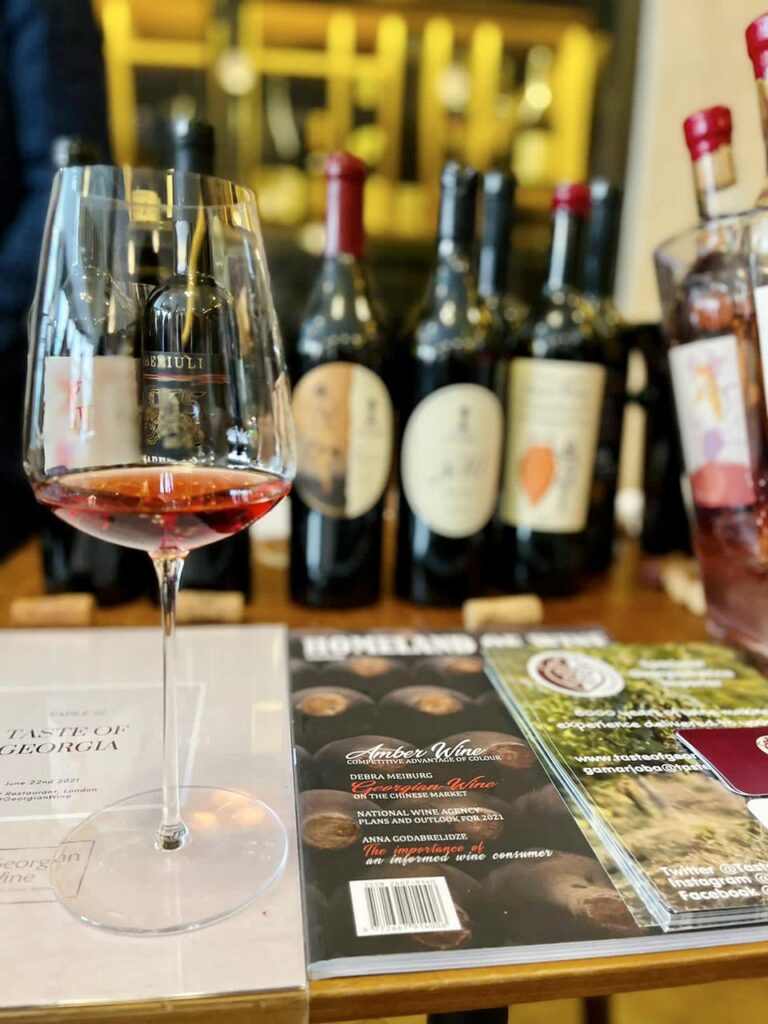
We know that the history of Georgian cuisine in England begins in the 90s. By now, there are already more than 10 Georgian restaurants in London alone, where you can taste Georgian dishes and Georgian wine. “Little Georgia,” a restaurant that the londonist.com wrote about, is one of them, and so is “Merton Café & Wine Bar” in Wimbledon. In addition, you have recently hosted Rian Coulter, a representative of British company Bompas & Parr, who is working on a project to popularise wines and cuisines of various countries.
There are up to 15 Georgian restaurants operating in London and one in Edinburgh. My appointment as an Ambassador took place last year, during the first wave of the pandemic. After my arrival to London, one of my first online meetings was with the owners of Georgian restaurants operating in London. We discussed their operations, the effects of the so-called lockdown, and how we could support them.
In addition to supporting Georgian wine in Great Britain, our Embassy is actively working on raising awareness about Georgian cuisine and culinary traditions. We cooperate with British culinary authors and journalists. Last year, together with a famous food writer, photographer, and author of “Tasting Georgia,” Carla Capalbo, we held an online culinary masterclass for the British Guild of Food Writers members.
Bompas & Parr, a British company that works on projects that help popularise arts, design, and cultures of various countries, took great interest in Georgian cuisine and wine. As a result of the Embassy’s cooperation, their issue in August will feature my interview about the diverse Georgian cuisine and wine and opportunities for gastro-tourism in Georgia. The online issue will be available for a massive audience worldwide, which will help raise awareness about our country.
And finally, one critical development is the creation of the Georgian Restaurateurs’ Association in the UK, established as a result of close cooperation with the Embassy. Association’s council includes famous British and international culinary experts, restaurateurs, and sommeliers (https://georest.co.uk/).
Qvevri wine in the United Kingdom
Georgian qvevri wine is trendy among British wine experts and people that know about the unique technology of making qvevri wine. Therefore, the Embassy actively supports establishing qvevri wine on the British market as a unique Georgian product. A significant development in this direction is the course on the technology of making qvevri wine in Plumpton college and its Georgian wine cellar (Marani).
In 2018 and 2019, with the initiative from the Georgian diaspora in Britain and support from our Embassy, we held Qvevri Wine Festival in London. We are once again ready to support its revival, considering the current situation with the pandemic.
This year, Swirl Wine Group is launching a global virtual platform to bring together ready-to-export Georgian wine producers and potential buyers in the UK market. I am interested in your opinion on this issue.
The activities carried out by the contractor of the National Wine Agency – Wine Expert Sarah Abbott and her company “Swirl Wine Group” over the past few years are significant for the presentation of Georgian wine to the British market. Sarah cooperates with our Embassy and regularly organises various types of events throughout the year. We express our cooperation in mutual support. In addition, on 22 June, the first time after the pandemic, we held a Georgian wine tasting in London, where about 100 companies presented their wines. It was a joint effort from the National Wine agency and our Embassy. The attendance was high and included both wine importers and experts, as well as the press.
Sarah Abbot also oversees the www.georgianwine.uk website that unites a wealth of exciting information about Georgian wine. It also includes recommendations on where and what kind of wine the public can purchase in the United Kingdom. One of the most critical features of this website will be a web portal that will connect wine producers and importers. It will also offer regular online consultations to Georgian companies for them to plan the suitable marketing campaigns.
SARRAH ABBOTT: QVEVRI WINES HAVE BEEN THE GREATEST DISCOVERY OF MY PROFESSIONAL LIFE
I really believe that Georgia has the potential to be a top-5 premium wine supplier to the UK market. We are still at the beginning of that journey but progress is strong. Exports of Georgian wine to the UK are already up by 60% compared to last year. And last year was a record-breaking year. Over 100 different Georgian wine brands are now available in the UK. Distribution is expanding. And the range of wines is inspiring, from niche qvevri amber wines to supple reds and refreshing dry whites.

You also pay special attention to Georgian varieties and even mention that if Georgia wants to be as strong as it can be in export markets, the diversity of varieties is one of the most important factors. You know that in recent years, special attention has been paid to the restoration and cultivation of old Georgian varieties (including forgotten ones).
Yes, the varietal diversity of Georgian wines is a huge strength, although it does require lots of education and marketing to reach consumers. I have noticed that Saperavi is gaining recognition and admiration. And recently there was an article praising Kisi in the Fondata fine and rare wine magazine, https://www.instagram.com/fondatamedia/
Despite the pandemic, the export rate increased by 150%. Appearing in high-class British restaurants, wine shops, and bars is still an ideal opportunity for Georgian wine because this is where the focus is on high-quality wines. How much has the number of facilities where we meet Georgian wine today increased – be it restaurants, wine shops, or other specialized facilities?
In 2020 there was a huge increase in exports, as you say. Off-trade sales boomed in general in the UK. This large increase in the rate of exports was the tipping point of many years of work we’ve done with the National Wine Agency, Producers, and UK buyers. Yes, high quality wines are the focus here, and we have encouraged that approach from the producers. It would be a great mistake to build Georgian exports to the UK on low-priced, basic wines. The Georgian wines currently in the UK market are all premium priced – by which I mean they are priced retail over £10. This means are part of a price sector that represents less than 20% of all wines sold retail. So volumes are limited. But prestige and positioning is high. We are now seeeing Georgian wines sold in hundreds of high-end independent wine shops, prestigious whole-sales, and high-end restaurants. It’s essential that we build in this way. It’s much easier to expand volume sales from a position of premium quality and prestigious image. It’s almost impossible to start from a “cheap and basic” positioning and then trade up. I’m really glad that Georgian producers and importers have shown the strategic wisdom and patience in building the market in this way.
As you know, this year, Qvevri was registered as a geographical indication. This has once again strengthened the 8000-year-old continuous winemaking tradition. The magazine’s new issue is dedicated to Qvevri and Qvevri wines – this is our main topic. What is your vision of Qvevri wines? How has it advanced in the last two years? How did the British consumer receive these wines?
I adore Qvevri wines and they have been the greatest discovery of my professional life. Qvevri are both ancient engineering, and almost spiritual express. In the UK, qvevri wines and the qvevri method have captured the attention of a small but influential sector of deep wine enthusiasts. All importers in the UK offer qvevri wine, both amber and red. Of course, Qvevri wines make up a small proportion of all the wines produced in Georgia, but their impact is huge. Qvevri has become the symbol of Georgian wine and even Georgia itself. They express ingenuity, problem-solving, ancient wine expertise, and a sensitive approach to making wine with a sense of place. There is still a lot of misunderstanding about Qvevri in the UK, and we hold training sessions to address this. For example, even some trade professionals think that Qvevri make oxidative wines, which of course isn’t true.
The British have a particular attitude and appreciate Georgian wines that are made in European style. You mentioned that it would be great if these wines were more present in the British market. What is the situation in this regard? What is the interest from the British people?
Actually the British first discovered Georgian wine through Qvevri. It is Qvevri amber wines in particular that first got our attention here. Over the last two years, importers have added European-style wines to their Georgian range, and now nearly all importers of Georgian wine include both Qvevri and European style wines in their Georgian range. This is a great strength for Georgia. I think that the European styles of Georgian wine broaden the appeal for our market, and allow Georgia’s incredible diversity of grape varieties to be shown.
Quality – this is a critical factor and it has been the main focus for both the government and the winemakers. Could you evaluate the quality of Georgian wines over these two years (from the time you last spoke to us from the pages of our magazine)?
Quality is excellent, and I congratulate the National Wine Agency and the Ministry of Agriculture for the great effort and work that has been done in raising quality standards and regulation. The producers are of course highly motivated for quality, because of their pride and passion in being part of Georgia’s incredible wine culture. At a recent tasting we held of over 150 Georgian wines, the comments from professional tasters were all positive. Technical quality and control is very good. But quality is about more than ‘technical correctness’. Great quality requires wines of distinctive style, that excite and stimulate. And we are starting to see that now in Georgian wines.
What are some of the events that Swirl Wine Group has planned for the rest of the year to help popularise Georgian wine?
We have a very busy program of events aimed at trade buyers and journalists. We have already held several virtual tastings. We held our trade tasting in June in London which was attended by more than 150 UK trade professionals. We are holding a Virtual Press Trip to Georgia in September, and more virtual tastings that will be attended by sommeliers and retail buyers through the Autumn. We also hold monthly webinars via our Georgian Wine Connect platform that are attended by producers and buyers. We have published two major online resources that allow producers and UK trade professional to connect, virtually network, and share detailed information about the wines: Georgian Wine Connect and Georgia Trade Guide. We are also working with a group of Ten Independent Retailers who are running Georgian Wine Tastings and Events for their customers. So, it is very busy!


